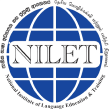Higher Diploma in Financial Management
Duration
24 Months
Total Crtedits
90 Credits
Principles of Accounting
Module Objective:
To ensure that a company’s financial statements are complete, consistent and comparable.
Content
- Revenue recognition principle.
- Matching principle
- Materiality principle
- Consistency principle
Taxation
Module Objective:
To generate revenue for the government to fund its various activities and programs, such as infrastructure development, social welfare, and national defense.
Content
- Direct taxes
- Indirect taxes
Business Analytics
Module Objective:
Inform changes to a business through utilization of predictive models that provide insight into the outcome of proposed changes.
Content
- Descriptive Analytics can show what happened and is the foundation of data insights.
- Diagnostic Analytics
- Predictive Analytics
- Prescriptive Analytics
Business Communication
Module Objective:
To convey information effectively and efficiently to achieve the goals and objectives of the organization.
Content
- Context, Sender/Encoder, Message, Medium, Receiver/Decoder and Feedback.
Business Economics
Module Objective:
- Future Prediction
- Recognition
- Classification of business issues
- Drafting business policies
- Establishing relations between different economic aspects
Content
- Supply
- Demand
- Product factors, consumption and dissemination
Business Law
Module Objective:
- Regulating the conduct of businesses and individuals engaged in commerce.
- Promoting fair competition and free trade.
- Protecting consumers and safeguarding their rights.
- Facilitating the orderly conduct of business transactions.
Content
- Rights assignment
- Drafting and work delegations
- Breach of contract
- Transactions
- Contracts
- Penalties for violation of the agreement
Business Research Methods
Module Objective:
To identify the issues and evaluate a plan to resolve them for better managerial functioning.
Content
- Research design
- Research methodology
- Approach within a research methodology
- Research method
- Use of longitudinal data
- Sampling strategy
- Data analysis techniques
Corporate Finance
Module Objective:
To maximize or increase shareholder.
Content
- Proper budgeting
- Raising capital to meet company needs and objectives with debt and/or equity.
- Efficient management of a company’s current assets and liabilities.
Corporate Law
Module Objective:
Overseeing all legal and external affairs matters including litigation, investigations, compliance, mergers and acquisitions, contract matters and international trade issues.
Content
- The body of law governing the rights.
- Relations
- Conduct of persons
- Companies
- Organizations and businesses
Digital Marketing
Module Objective:
- Sell – Grow sales. Start with your most important transactions that lead to revenue and profit.
- Speak – Get closer to customers through dialogue and participation.
- Serve – Add value.
- Save – Save costs.
- Sizzle – Extending your brand online.
Content
- Search Engine Optimization (SEO)
- Social Media Marketing (SMM)
- Pay-per-click Advertising (PPC)
- Email Marketing
Entrepreneurship
Module Objective:
- Develop a business plan.
- Launch your first product.
- Create an online presence.
- Achieve financial stability.
- Hire the right people.
- Delegate effectively.
- Work with ideal clients.
- Connect with like-minded individuals.
Essentials of Information Skills
Module Objective:
To enable them to exploit the wide range of information resources available and to retrieve, evaluate and use that information effectively.
Content
- Identify
- Find
- Evaluate
- Apply
- Acknowledge sources of information
Financial derivative
Module Objective:
- Risk management
- Hedging
- Arbitrage between markets
- Speculation
Financial markets and institutions
Module Objective:
Facilitating the smooth operation of capitalist economies by allocating resources and creating liquidity for businesses and entrepreneurs.
Content
- Bonds
- Equities
- The various international currencies.
- Derivatives
Financial Technology
Module Objective:
Help companies, business owners and consumers better manage their financial operations, processes and lives.
Content
- Block chain technology.
- Artificial Intelligence (AI)
- Machine Learning
- Other big data functions like robotic process automation (RPA).
Human Resources Management
Module Objective:
To ensure the right people with the right skills for the right job position in an organization.
Content
- Recruitment
- Induction
- Working environment
- Staff relations
- Staff development
Introduction to Finance
Module Objective:
To give an understanding of the role of financial management in industry.
Content
- Banking
- Leverage or debt
- Credit
- Capital markets
- Money
- Investments
- Creation and oversight of financial systems
Introduction to Financial Accounting
Module Objective:
To accurately prepare an organization’s financial accounts for a specific period.
Content
- The income statements
- The balance sheets
- The cash flow statement
- The statement of retained earnings
Introduction to Management Accounting
Module Objective:
To maximize profit and minimize losses.
Content
- Product costing
- Budgeting
- Forecasting
- Various financial analysis
Organizational Behaviour
Module Objective:
To understand the human interactions in an organization find what is driving it and influence it for getting better results for attaining business goals.
Content
- Motivation
- Leader behaviour and power
- Interpersonal communication
- Group structure and processes
- Attitude development and perception
- Change processes
- Conflict and negotiation and work design
Principles of Management
Module Objective:
- Establishment of objectives
- Performance
- Appraisal of performance based on the objectives
Content
- Planning
- Organization
- Commanding
- Coordinating
- Controlling
Quantitative methods
Module Objective:
To develop and employ mathematical models, theories and/or hypothesis pertaining to phenomena.
Content
- Data Analysis
- Sampling Profitability
- Questionnaire
- Experiment
- Sampling methodology
Risk Management and Insurance
Module Objective:
Protect not only the assets and income of an organization from the potential of accidental loss, but also other stake holder’s dependent upon the organization.
Content
- Risk identification is the process of documenting potential risks and then categorizing the actual risks and business faces.
- Risk analysis
- Response planning
- Risk mitigation
- Risk monitoring
Strategic Management
Module Objective:
Covers the setting objectives for the company, keeping an eye on competitor’s actions, reassessing the organization’s internal structure, evaluating present-day strategies, and affirming the implementation of those strategies throughout the company.
Content
- Goal setting
- Gathering information
- Strategy formulation
- Strategy implementation
- Strategy evaluation
- The Start
- Analyzing
- Forming the strategy


